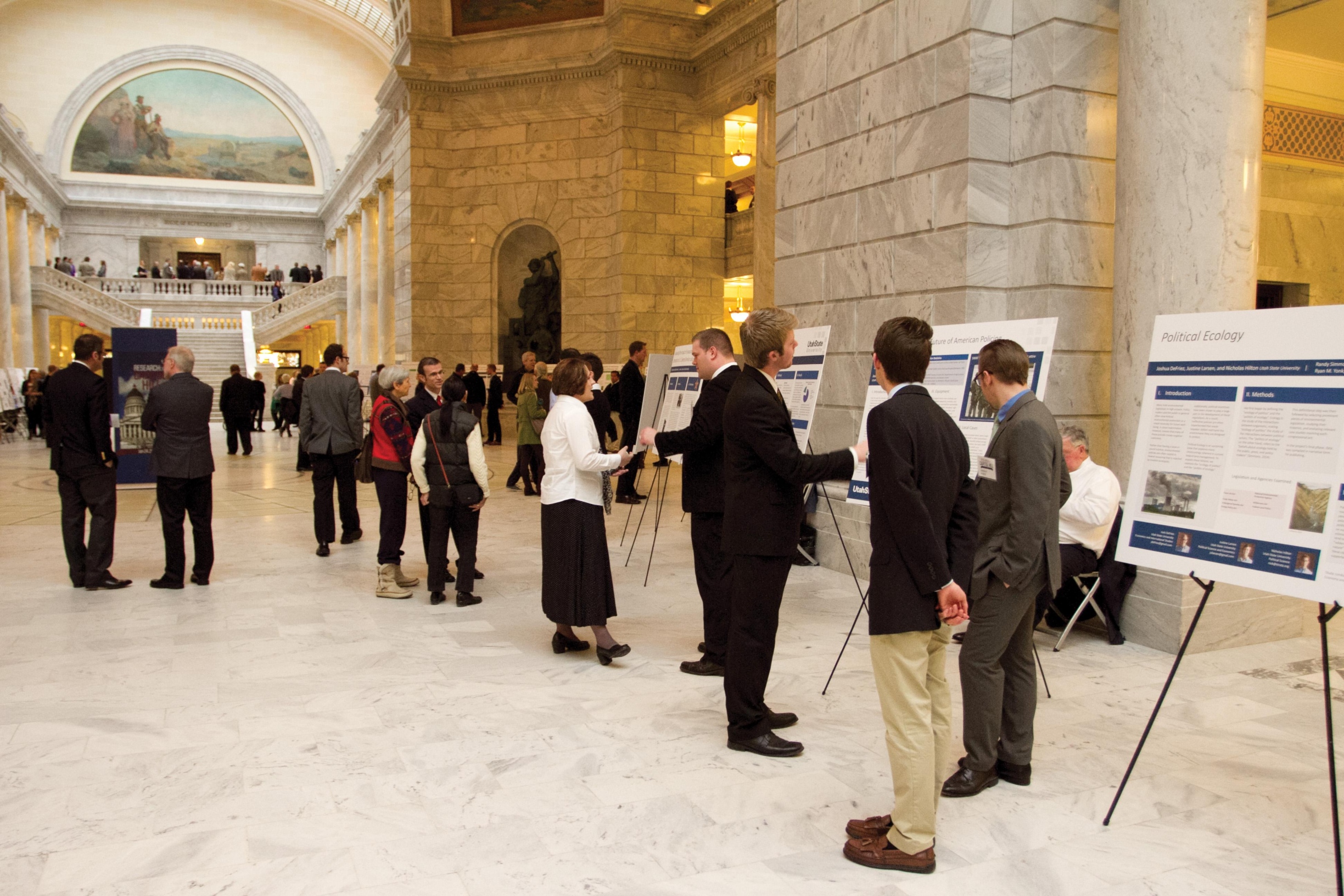Student work showcased in SLC
More than 30 undergraduate students gathered in the rotunda of the Utah Capitol on Saturday with students from University of Utah to present their research projects to the state legislature and the public.
Scott Bates, associate vice president of Research and Graduate Studies at USU, said the event, known as Research on Capitol Hill, is a shoot-off of the larger event held each April in Washington D.C., called Posters on the Hill.
“About 10 years ago, my predecessor and the University of Utah decided that we should replicate that program here in Utah,” he said.
Bates said the purpose of the event is 80 percent to showcase the students and 20 percent to showcase the university.
“It was seen as an opportunity to get both of the research universities in the state to show how they are distinguished from the non-research universities in the state,” Bates said. “They aren’t doing this kind of thing at SUU.”
Utah Lt. Gov. Spencer Cox was present at the event and gave remarks.
“Utah is leading the nation in nearly every metric,” Cox said. “But we are still going to need people smarter than me to solve our problems.”
The student presenters represented every college at USU with the exception of the Caine College of the Arts.
Jared Glenn, a senior double majoring in sociology and political science, presented his research on whether or not a professor’s gender affects learning by male students.
“It’s been known for a while that female students prefer and perform better with female teachers,” he said. “I wanted to find out if the same went for male students.”
Mark Soffe, a senior in biochemistry, has been investigating an alternative method of purifying specific proteins.
“My project is one of the more technical ones,” he said. “But, if my method works, it will take a lot of time out of chemistry research.”
Other projects included an investigation of the correlation between money spent on kids organized sports and the likelihood of children continuing in the sport by Michael King, a determination of how habitat stress affects garter snakes by Austin Spence and a look into how beaver dams affect the health of streams by Trinity Stout.
Bates said preparation for the event began when more than 50 students submitted abstracts back in November.
“I made selections based on trying to get a diverse array of disciplines,” he said. “We take 25 projects every year.”
The majority of the students have been working on their projects for at least a year.
Soffe said he used the summer break to really make headway.
“Over the summer was actually pretty intense trying to get the DNA clones right,” he said. “I would spend 8 to 10 hour days in the lab, five to six days a week.”
The student researchers have gained a great deal by working on their projects.
“It’s one thing to sit in lecture and read PowerPoint slides about other people discovering things in your field,” Soffe said. “It’s another thing to get that hands-on experience.”
Glenn said his project helped him decide what kind of a career he wants to pursue.
“I have wanted to be a professor at USU for a long time,” he said. “Once I found out what professors do besides just teaching, which is gain knowledge, I realized this is definitely what I want to do.”
Even with all of the work the students have already put in, the majority of them said they were not yet finished with their research.
Soffe said his final goal is to get published.
“I’m working on it now as part of the chem research class,” he said. “If I don’t get it done this semester, I’ll just work on it this summer.”
Glenn said he would like to use his research to make a difference in the world.
“What the heck is the point of doing it if you aren’t going to improve anything?” he said. “If there is a difference in how the genders learn, let’s teach females how to teach males and males how to teach females.”
Both Cox and USU President Stan Albrecht gave special thanks to the students involved.
“This is the kind of research that changes lives,” Albrecht said.
“Thank you for what you are doing for our state,” Cox said.
– ashlyn.tucker@aggiemail.usu.edu

